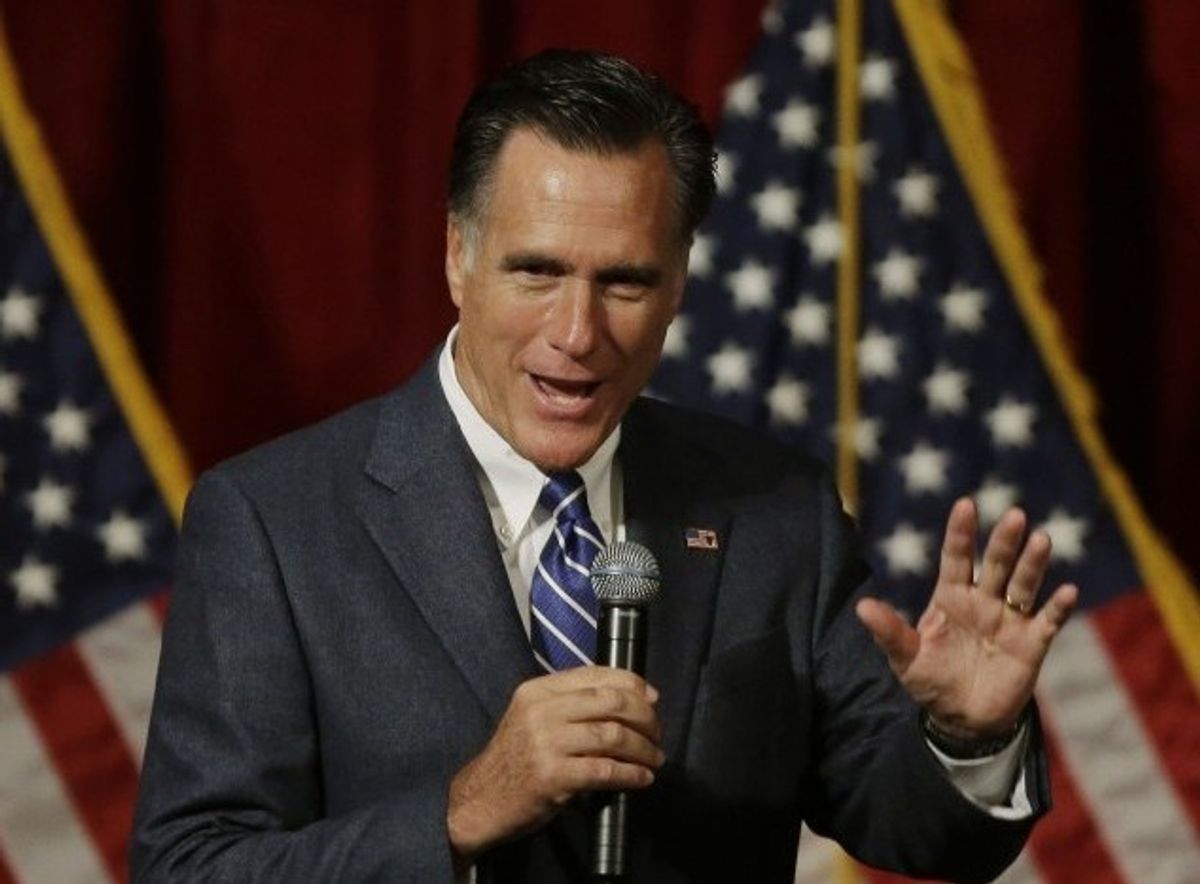“My heart aches for the people I’ve seen,” Mitt Romney said, on the second day of his Ohio bus tour. He’s now telling stories of economic hardship among the people he’s met.
Up until now, Romney’s stories on the campaign trail have been about business successes – people who started businesses in garages and grew their companies into global giants, entrepreneurs who succeeded because of grit and determination, millionaires who began poor. Horatio Alger updated.
Curiously absent from these narratives have been the stories of ordinary Americans caught in an economy over which they have no control. That is, most of us.
At least until now.
“I was yesterday with a woman who was emotional,” Romney recounts, “and she said, ‘Look, I’ve been out of work since May.’ She was in her 50s. She said, ‘I don’t see any prospects. Can you help me?’”
Could it be Romney is finally getting the message that many Americans need help through no fault of their own?
“There are so many people in our country that are hurting right now,” Romney says. “I want to help them.”
Later in the day, Romney told NBC that because of his efforts as governor of Massachusetts, “one hundred percent of the kids in our state had health insurance. I don’t think there’s anything that shows more empathy and care about the people of this country than that kind of record.”
But the repackaging of Mitt as a compassionate conservative won’t work. The good citizens of Ohio — as elsewhere — have reason to be skeptical.
This is, after all, the same Mitt Romney who told his backers in Boca Raton that 47 percent of Americans are dependent on government and unwilling to take care of themselves.
It’s the same Romney who was against bailing out GM and Chrysler. One in eight jobs in Ohio is dependent on the automobile industry. Had GM and Chrysler gone under, unemployment in Ohio would be closer to the national average of 8.1 percent than the 7.2 percent it is today.
This is the same Romney who has been against extending unemployment benefits. Or providing food stamps or housing benefits for families that have fallen into poverty. Or medical benefits. To the contrary, Romney wants to repeal Obamacare, turn Medicare into vouchers, and turn Medicaid over to cash-starved states.
This is the same Mitt Romney who doesn’t worry that Wall Street financiers — including his own Bain Capital — have put so much pressure on companies for short-term profits that they’re still laying off workers and reluctant to take on any more.
And the same Mitt who doesn’t want government to spend money repairing our crumbling infrastructure, rebuilding our schools, or rehiring police and firefighters and teachers.
Romney says he feels their pain but his policy prescriptions would create more pain.
Mitt Romney’s real compassion is for people like himself, whom he believes are America’s “job creators.” He aims to cut taxes on the rich, in the belief that the rich create jobs — and the benefits of such a tax cut trickle down to everyone else.
Trickle-down economics is the core of Romney’s economics, and it’s bunk. George W. Bush cut taxes — mostly for the wealthy — and we ended up with fewer jobs, lower wages, and an economy that fell off a cliff in 2008.
In Ohio Romney is repeating his claim that, under his tax proposal, the rich would end up paying as much as before even at a lower tax rate because he’d limit their ability to manipulate the tax code. “Don’t be expecting a huge cut in taxes because I’m also going to be closing loopholes and deductions,” he promises.
But Romney still refuses to say which loopholes and deductions he’ll close. He doesn’t even mention the “carried interest” loophole that has allowed him and other private-equity managers to treat their incomes as capital gains, taxed at 15 percent.
What we’re seeing in Ohio isn’t a new Mitt Romney. It’s a newly packaged Mitt Romney. The real Mitt Romney is the one we saw on the videotape last week. And no amount of retaping can disguise the package’s true contents.



Shares